Mushrooms of the Pyrenees, from the Mediterranean Sea to the Cantabrian Sea
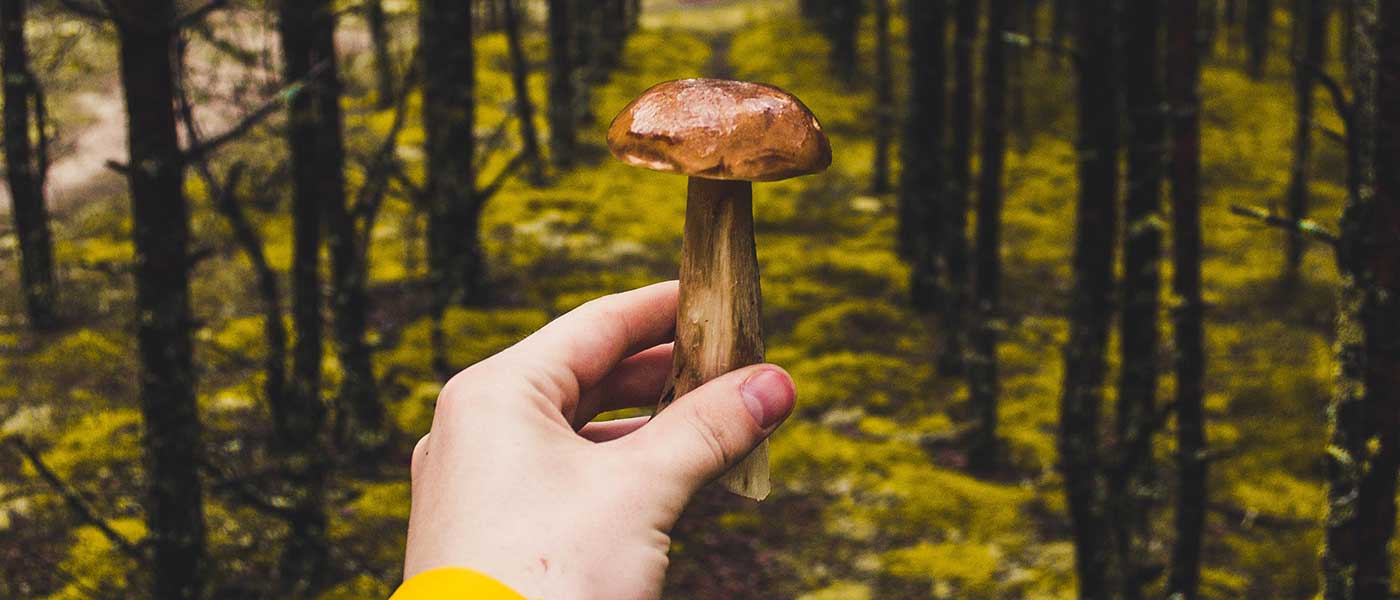
The beginning of fruiting of the mushrooms from the PyreneesThe summer and autumn are a time of happiness for lovers of these edible species. . Picking mushrooms in the Pyrenees (Aragonese, Navarrese and Catalan) has become an emblematic activity, in which thousands of people take part every season.
The most prized mushrooms
There are many varieties of mushrooms that grow in the different areas of the Pyrenees, thanks to their vegetation, soil and climate. From the Mediterranean Sea to the Atlantic Ocean, amateurs and professionals collect different species.
They can be edible or poisonous, or even hallucinogenic. That is why we must be very careful when picking mushrooms, we must have the necessary experience to avoid any confusion that could put us in danger.
Boletus edulis or pumpkin
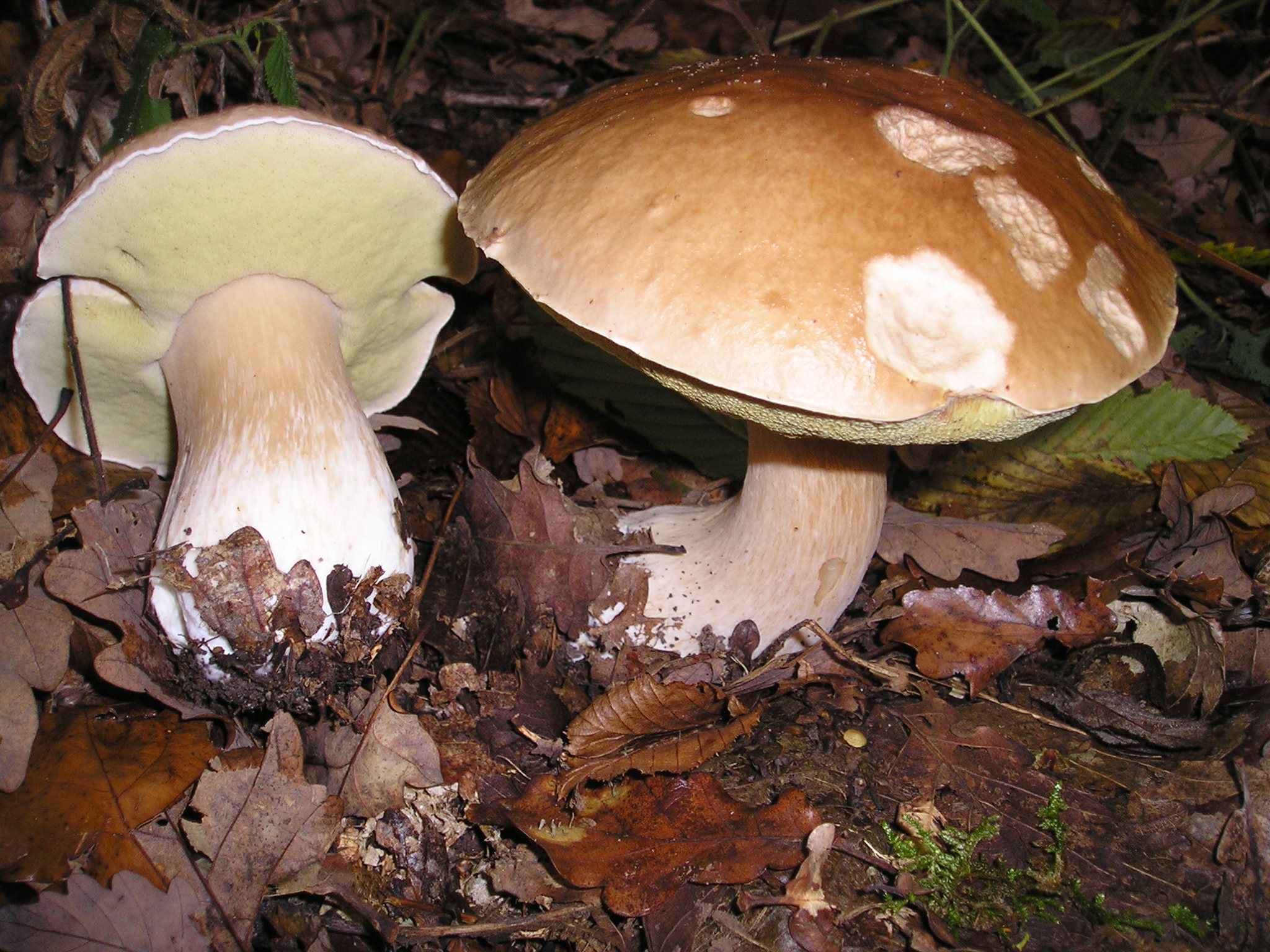
This is one of the mushrooms most prized for their taste and aromaThey are also easy to obtain and collect. Their characteristics: light brown cap, exquisite flavour and jelly-like texture. They grow on the edges of forests under pine and fir trees. To boletus edilus you could find it on Mount Oroel in the Aragonese Pyrenees; the Garrotxa region in the Catalan Pyrenees; and the Irati Forest in the Navarrese Pyrenees.
Loquat or chanterelles
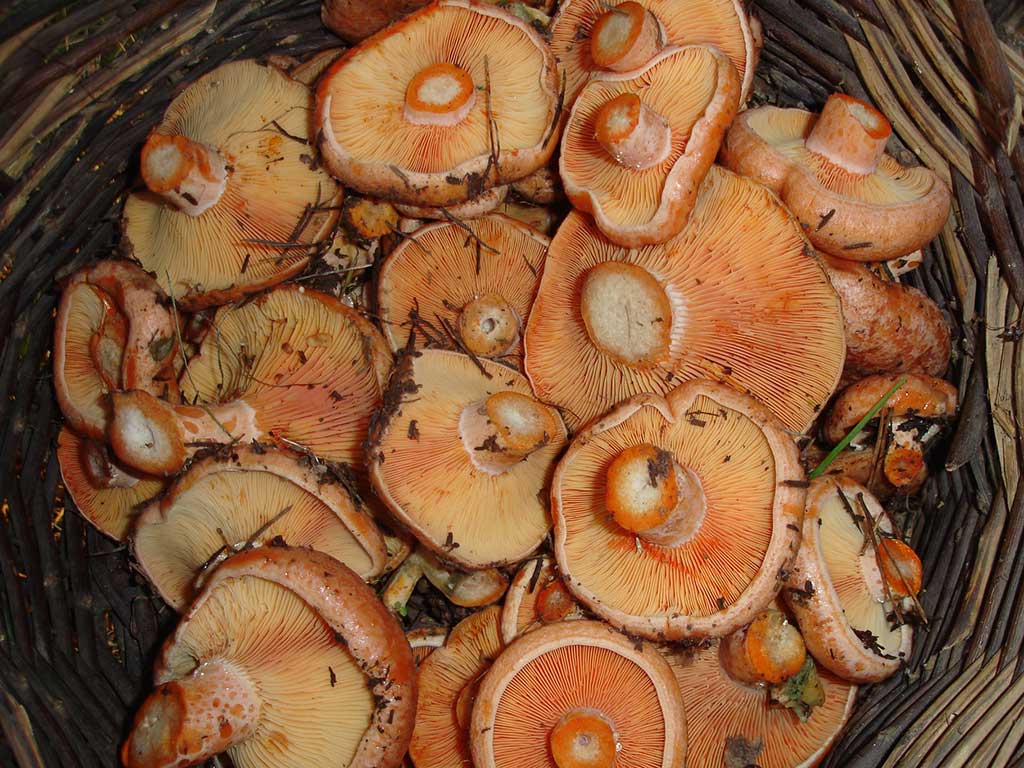
This species has gained the greatest popularity among mushrooms, as it is easy to locate and collect. It grows in a few days mainly in damp, poorly lit pine forests. It has an orange body with green spots and is used in numerous dishes, due to its fibrous texture and intense flavour. You can get delicious specimens of robellón in the Aran valley and the valleys of Andorra, the pine forests of Mount Oroel in the Aragonese Pyrenees and several areas of the Navarrese Pyrenees.
Chanterelle
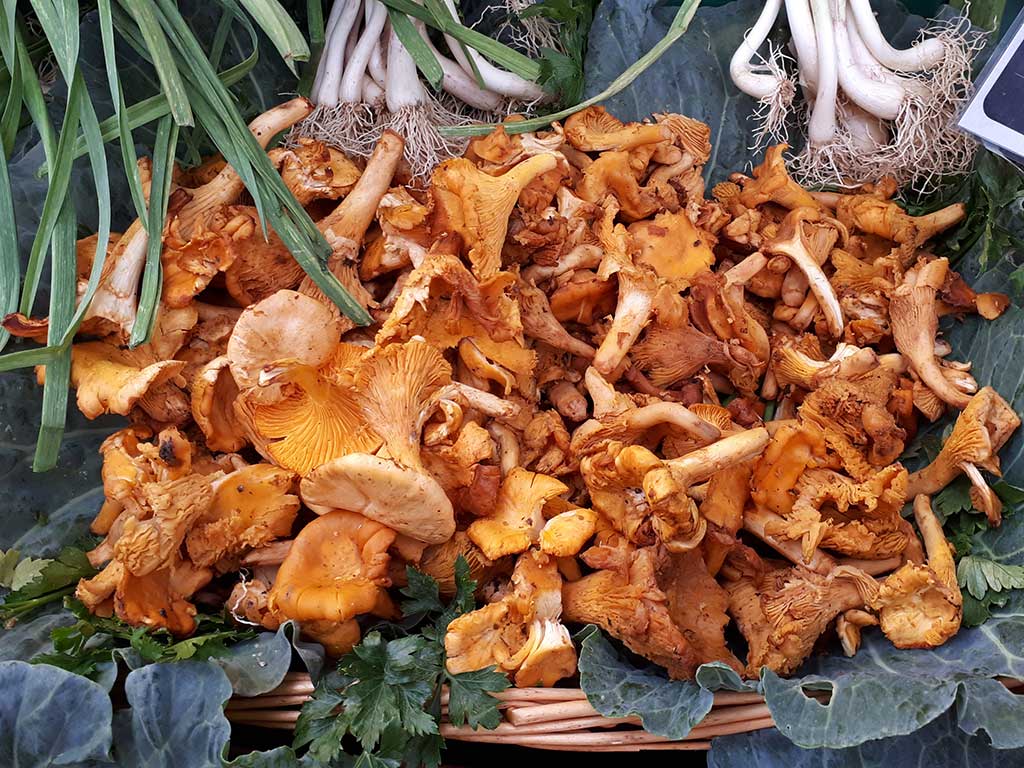
Also known as rossinyolThis mushroom gives off a remarkable aroma and is often used in gastronomic preparations involving fish or meat. It has become the most commercial species worldwide and is distinguished by its yellow or orange colour. The chanterelle grows in the Catalan Pyrenees, especially in the Garrotxa region, the Aran Valley and the valleys of Andorra; and in the Navarrese Pyrenees, specifically in the valleys of the RoncalSalazar and the Selva de Iratí.
Agaricus campestre or mushroom
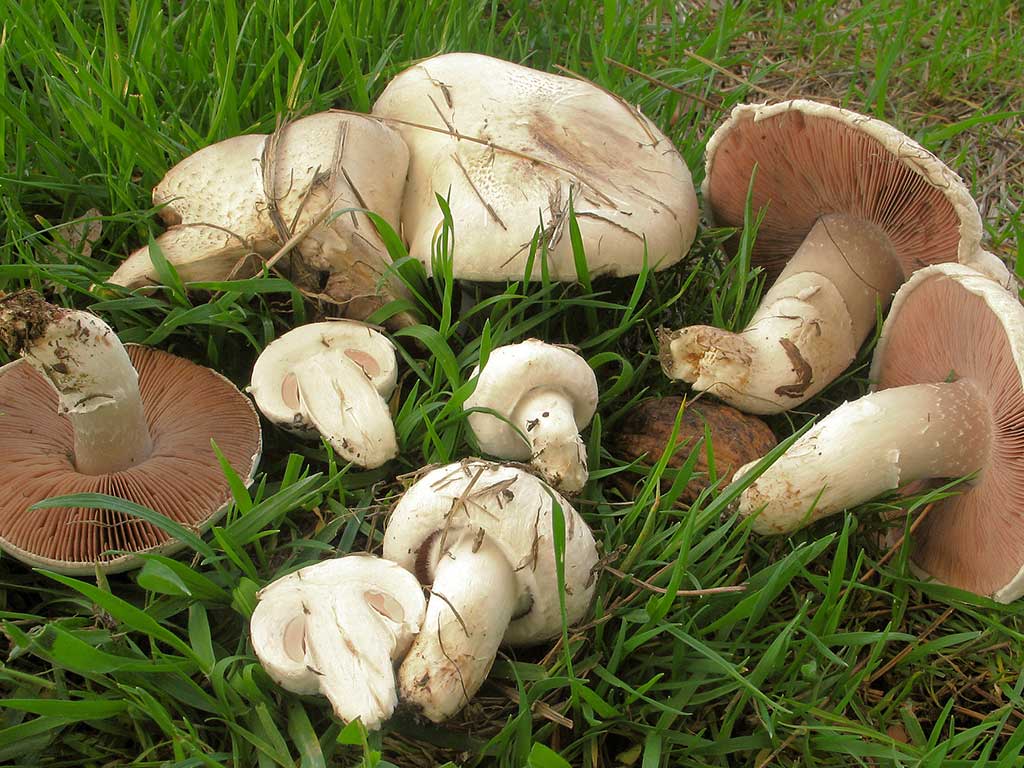
The mushroom is the best known mushroom in the world. It serves as a complement in delicious food dishes, due to its abundant flesh and soft texture that can even be eaten raw. Care must be taken as there is a darker coloured toxic variety.
Calocybe gambosa o perrechico
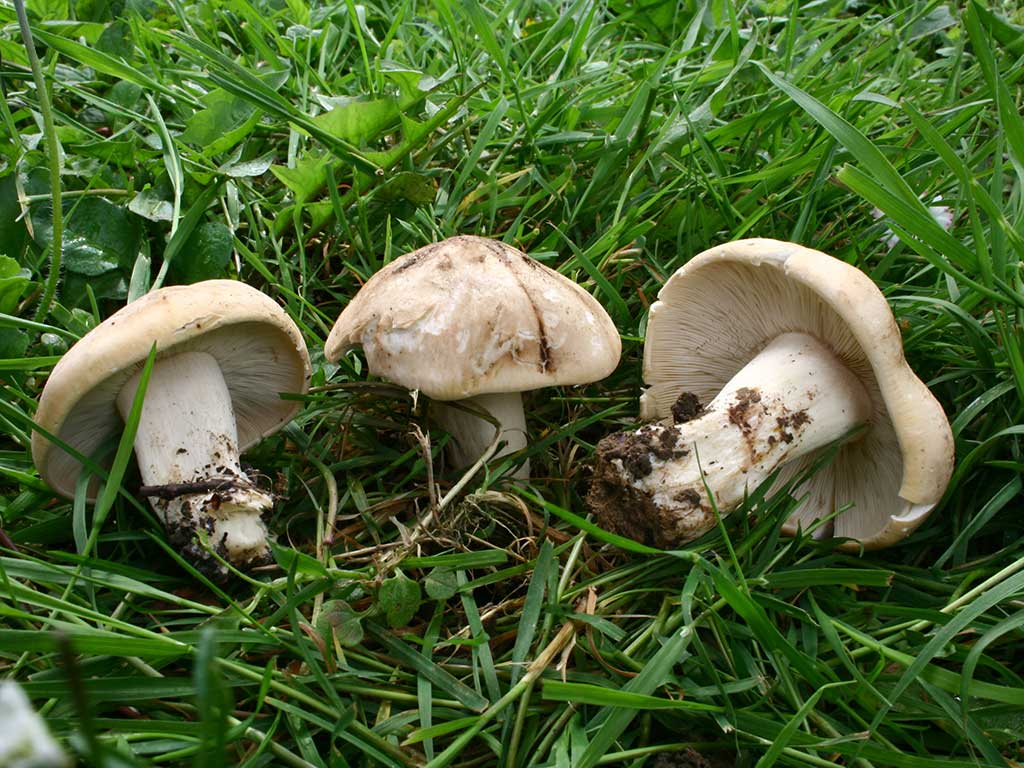
It is known as spring mushroom or St George's mushroom. It has conquered the preference of consumers because it offers exceptional quality, with a mild aroma and floury taste. In cooking, it is often used in the preparation of stews or tortillas. The famous perrechico (perretxico) grows abundantly in the fields and mountain pastures that cover the Aragonese Pyrenees, as well as in other Pyrenean areas. There is a long tradition of harvesting in the Navarrese and Basque Pyrenees.
Pleurotus eryngii or oyster mushroom
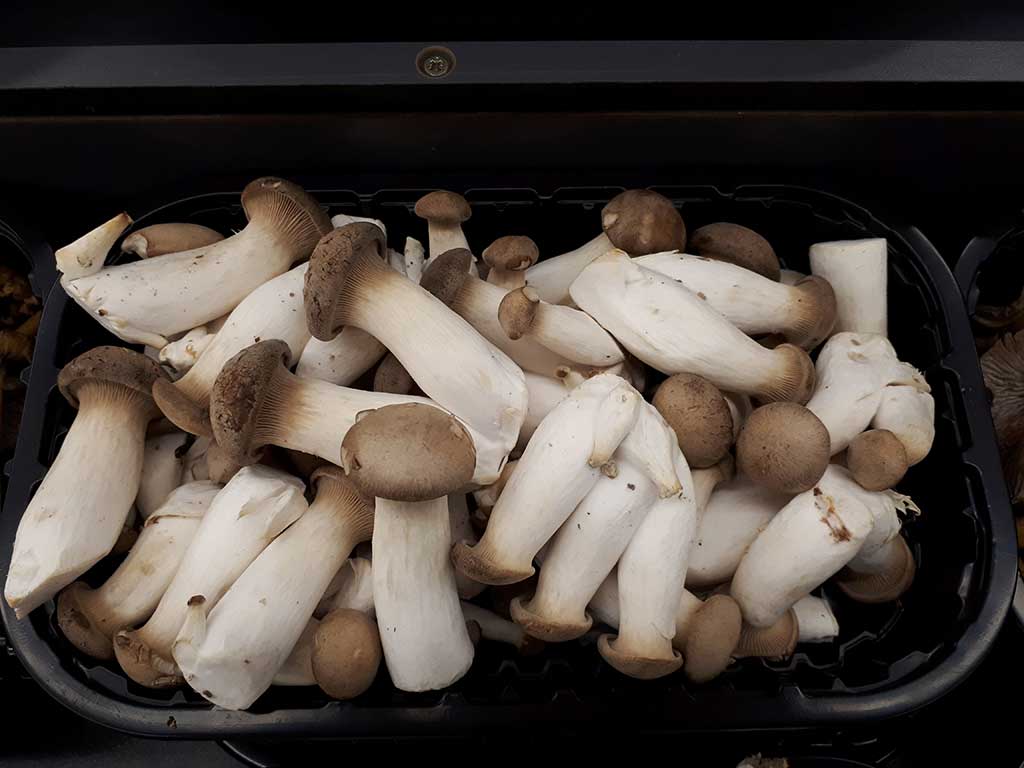
This mushroom is well known and appreciated for its delicate and fine taste. This variety grows most commonly around thistles in sandy soils. It is often confused with the oyster mushrooma common species of lower quality. Harvesting of the thistle mushroom can be done in areas of the Aragonese Pyrenees, such as the valley of Aragüés de Puerto, Benasque and Reclusa, as well as in the Sobrarbe regionand in other thistle-rich areas.
These mushrooms are just some of the possibilities offered by the Pyrenees. If you want to collect them, we recommend that you go to the in summer and autumn, between May and early Novemberwhen production increases. And as mentioned above, this requires the necessary experience, or someone with experience.
Fastpacking is not about going faster. It's about going lighter.
If you come from classic trekking, this is the next step: learning to move with less weight,
more fluid and enjoying every kilometre more.
Join the Outsiders Newsletter and start discovering what lightness feels like.

